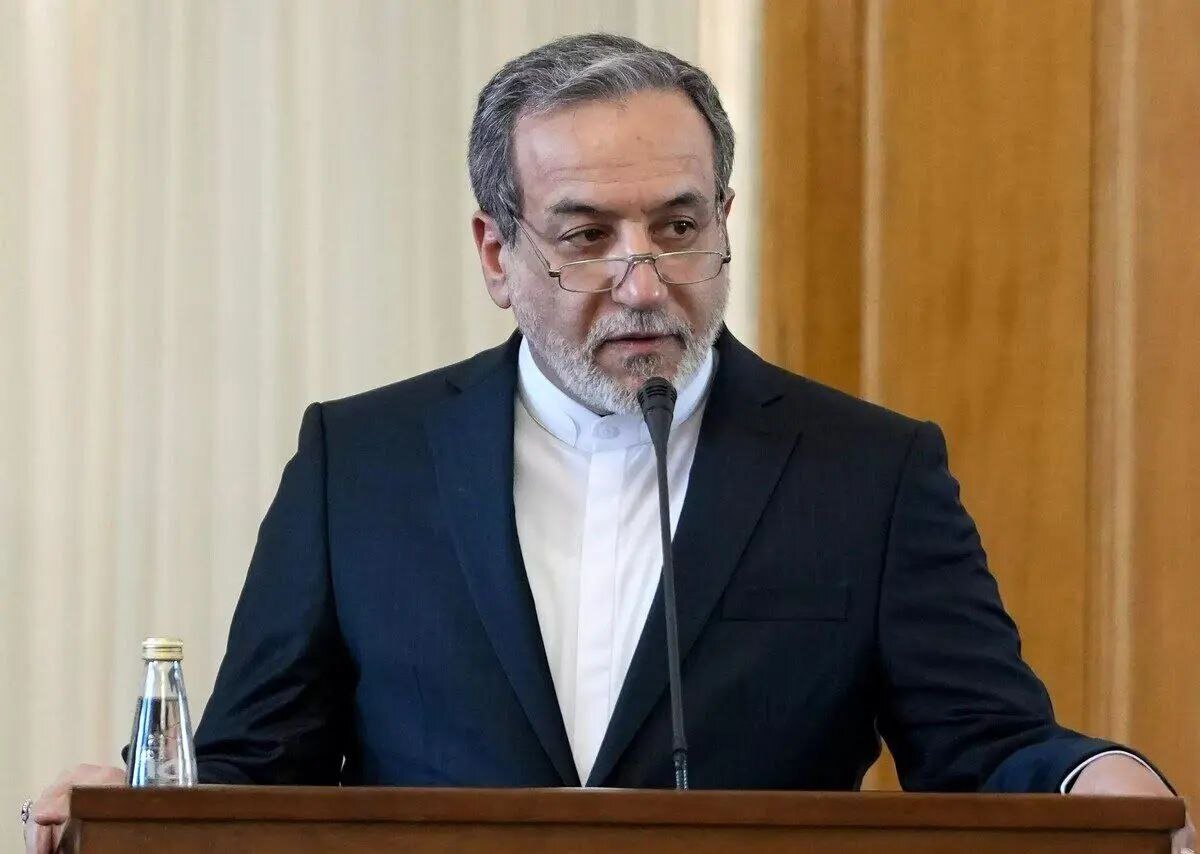Araghchi: Western support for Israel confirms Iran’s self-reliance strategy

TEHRAN – Iranian Foreign Minister Abbas Araghchi has condemned Western nations for supporting the Zionist regime’s clear acts of aggression, stating that such support validates Iran’s longstanding policy of self-reliance in defense and security.
“Western backing of Israel only reinforces our conviction that we can count on no one but ourselves and our armed forces,” Araghchi told reporters on Sunday following a meeting with foreign diplomats and heads of international organizations based in Tehran. “Our security is safeguarded by our armed forces, and they are fulfilling this duty with strength and resolve.”
In response to recent developments, Araghchi said the Foreign Ministry has launched a wide-ranging diplomatic campaign to condemn Israel’s attack, particularly targeting the strike on Iran’s nuclear infrastructure—a move he pointed out constitutes a violation of international law.
“I immediately sent a letter to the UN Secretary-General and spoke with him by phone. We requested an emergency session of the Security Council, which was held. The positions expressed—except for three or four countries—were largely constructive. However, due to U.S. interference, the draft statement condemning the Israeli regime failed to pass,” Araghchi said.
He added that Iran had also written to the Director General of the International Atomic Energy Agency (IAEA), calling for an urgent meeting of the IAEA Board of Governors, scheduled for tomorrow. “We hope this session produces a resolution or at least a strong statement. The international community must not remain silent in the face of a military strike on another nation’s nuclear facilities. Silence only emboldens the aggressor,” he warned.
Araghchi emphasized that Iran seeks to channel the strength shown by its armed forces into meaningful diplomatic outcomes. “We are pursuing this path with pride. Our mission now is to convert the courage of our armed forces into peace through diplomacy.”
Iran has also engaged multilateral organizations. Araghchi wrote to the Secretary-General of the Organization of Islamic Cooperation (OIC) to request an extraordinary session, although a regular meeting of OIC foreign ministers is already set for next Saturday, where the issue will be raised.
The Foreign Minister confirmed discussions with the Secretary-General of the Shanghai Cooperation Organization (SCO), which led to a formal condemnation of the attack.
“In the past 48 hours, I’ve spoken with over 20 foreign ministers,” Araghchi said, “and the President has held talks with six or seven heads of state. The global and regional condemnation of this aggression has been extensive and clear. Still, some Western countries, including the U.S., continue to obstruct meaningful international action while supporting the aggressor.”
Araghchi sharply criticized the stance taken by the U.S. and the three European countries during the UN Security Council session, accusing them of repeating past mistakes by siding with the aggressor.
“It is both astonishing and deeply regrettable that, even in the face of a blatant military strike on nuclear facilities—which are protected under international law—these countries failed to condemn the attack. Some even used language that implicitly legitimizes it,” he said.
“This is a historic error. Encouraging an aggressor undermines international law and has grave consequences for the global community—not just for Iran. The Zionist regime has already trampled every red line in Gaza and beyond, and sadly, it is being rewarded with political cover from the West.”
Araghchi added, “What’s happening in Gaza is not only the killing of Palestinians—it’s the death of human rights, international humanitarian law, and the very norms that hold the world together.”
Addressing Iran’s willingness to return to negotiations, Araghchi reaffirmed that diplomacy has never been off the table.
“The Islamic Republic of Iran has never abandoned diplomacy. Based on our principles, we are committed to peaceful solutions. On the nuclear issue, we remain firm on our people's rights but are ready to clarify concerns, answer questions, and take steps that build trust in our peaceful nuclear activities.”
He said the recent talks with the United States had followed this approach and signaled that, should the aggression cease, “the path back to diplomacy will naturally be reopened.”
Regarding reactions from neighboring countries, Araghchi said nearly all had adopted firm and supportive positions.
“The Saudi Foreign Minister was the first to call, followed by his Egyptian counterpart and others across the region. All expressed their strong condemnation of the Zionist regime’s aggression and their full support for Iran. We remain in constant contact with our regional partners, and our relationships are currently very strong,” he noted.
But Araghchi also warned that the situation could spiral. “The war ignited by the Zionist regime could easily get out of control. That is exactly what this regime wants. Fortunately, regional nations are acting with awareness and responsibility to resist Israel’s push for escalation. With their cooperation, we hope to contain the flames of war and prevent further conflict.”
Leave a Comment